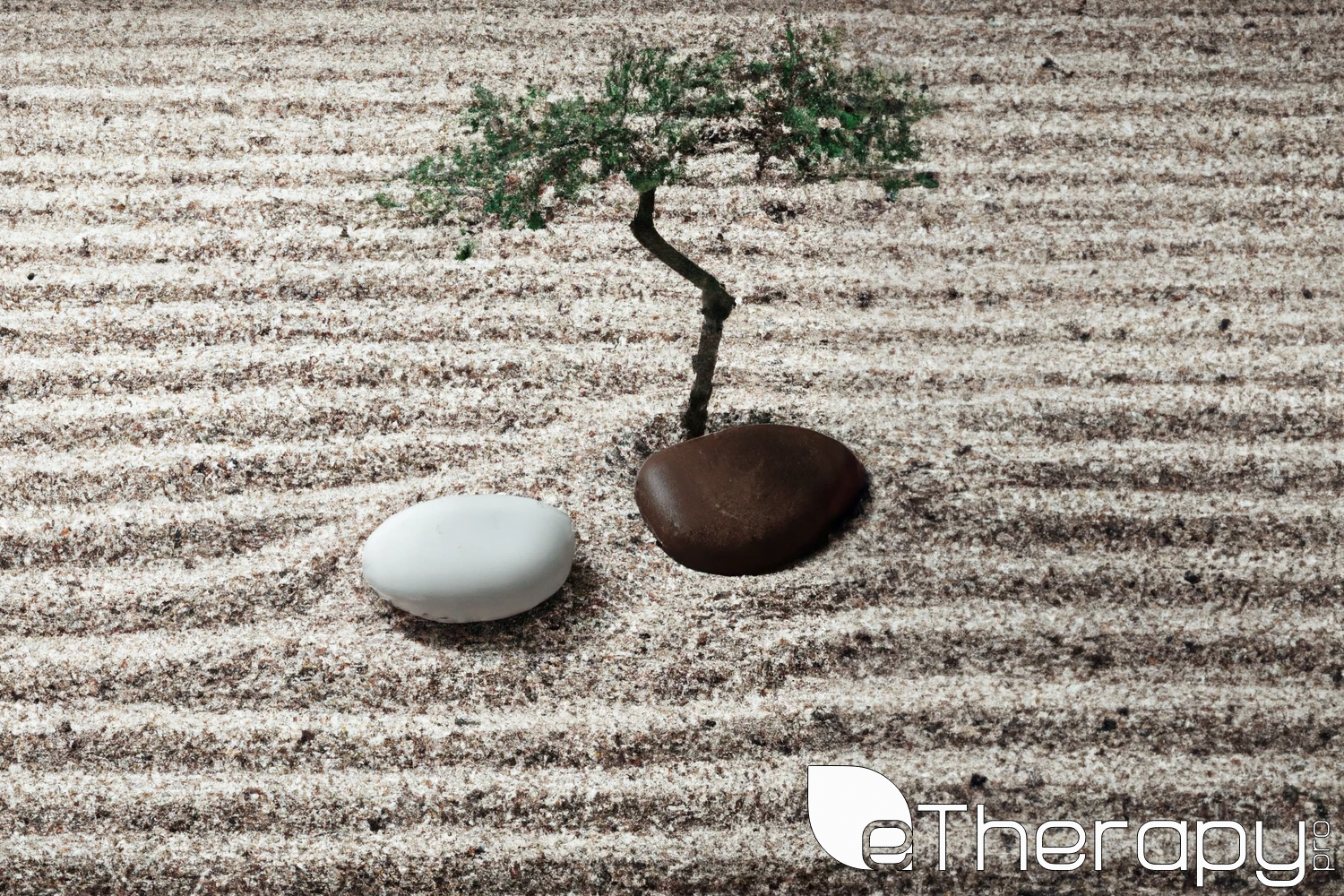 In our fast-paced and often chaotic world, finding moments of peace and tranquility can be a challenge. Mindfulness, the practice of being fully present and engaged in the current moment, offers a pathway to inner calm and emotional well-being. This article explores the power of mindfulness and its benefits for mental health. By incorporating mindfulness techniques into our daily lives, we can cultivate self-awareness, manage stress, regulate emotions, and foster a deeper connection with ourselves and others. Join us on this journey of discovering the transformative potential of mindfulness.
In our fast-paced and often chaotic world, finding moments of peace and tranquility can be a challenge. Mindfulness, the practice of being fully present and engaged in the current moment, offers a pathway to inner calm and emotional well-being. This article explores the power of mindfulness and its benefits for mental health. By incorporating mindfulness techniques into our daily lives, we can cultivate self-awareness, manage stress, regulate emotions, and foster a deeper connection with ourselves and others. Join us on this journey of discovering the transformative potential of mindfulness.
Understanding Mindfulness
At its core, mindfulness is about paying attention intentionally and non-judgmentally to the present moment. It involves observing our thoughts, emotions, and sensations without getting caught up in them or trying to change them. By practicing mindfulness, we develop a greater capacity to respond to life’s challenges with clarity, compassion, and equanimity.
The Benefits of Mindfulness
The practice of mindfulness offers a multitude of benefits for our mental and emotional well-being. Let’s explore some of the key advantages that arise from incorporating mindfulness into our lives:
1. Stress Reduction
Mindfulness has been shown to be effective in reducing stress and promoting relaxation. By directing our attention to the present moment, we can detach from worries about the past or future, allowing for a greater sense of calm and balance. Through mindfulness, we cultivate a mindset that is more resilient and better equipped to handle the ups and downs of life.
2. Emotional Regulation
Mindfulness practices help us develop a deeper understanding of our emotions and how they manifest in our bodies. By observing our emotions without judgment, we can respond to them in a skillful and compassionate manner. This heightened emotional intelligence enables us to navigate challenging situations with greater clarity and stability.
When you truly know yourself, you don’t try to impress people anymore. One way to know yourself is to meditate. – Maxime Lagacé
3. Increased Self-Awareness
Mindfulness enhances self-awareness by allowing us to tune into our thoughts, feelings, and physical sensations. Through this heightened awareness, we gain insights into our patterns of behavior, reactions, and triggers. With a clearer understanding of ourselves, we can make conscious choices that align with our values and goals.
Practicing Mindfulness
Now that we understand the benefits of mindfulness, let’s explore some practical techniques to incorporate into our daily lives. Remember, mindfulness is a skill that can be cultivated with practice and patience. Here are a few mindfulness exercises to get you started:
Mindful Breathing
Find a quiet space and take a few deep breaths, focusing your attention on the sensation of the breath entering and leaving your body. Allow your breath to be a gentle anchor, bringing you back to the present moment whenever your mind wanders. Take notice of how the breath feels, the rise and fall of your abdomen, and the sensation of air passing through your nostrils. This simple practice can help calm the mind and promote a sense of relaxation.
Body Scan Meditation
Lie down or sit in a comfortable position and bring your attention to different parts of your body, starting from the top of your head and slowly moving down to your toes. Notice any sensations or areas of tension, and gently release any tightness or discomfort with each exhale. This body scan meditation helps cultivate a connection between the mind and body, promoting relaxation and physical awareness.
Mindful Eating
Bring mindfulness to your meals by savoring each bite and paying close attention to the sensory experience of eating. Engage your senses by noticing the colors, textures, smells, and tastes of the food. Chew slowly and savor the flavors, fully experiencing the nourishment it provides. This practice encourages us to slow down and fully engage with the act of eating, fostering a deeper connection to our bodies and the nourishment we receive.
Walking Meditation
Engage in a mindful walk by bringing your attention to the sensations in your body as you take each step. Notice the contact of your feet with the ground, the movement of your muscles, and the rhythm of your breath. Allow your surroundings to come into focus, appreciating the beauty of nature or the urban landscape. Walking meditation is a powerful way to integrate mindfulness into your daily routine and cultivate a sense of groundedness and presence.
When you walk, arrive with every step. That is walking meditation. There’s nothing else to it. ― Thích Nhất Hạnh
The Role of Mindfulness in Addressing Emotional Challenges
Now that we have explored the practice of mindfulness and its benefits, let’s discuss its relevance to addressing emotional challenges. While mindfulness itself may not directly resolve deep-seated emotional issues, it provides a foundation for developing self-awareness, emotional regulation, and compassion, which are crucial components in the healing process.
Self-Awareness and Reflection
Mindfulness practices allow us to develop a deeper understanding of our thoughts, emotions, and patterns of behavior. Through self-awareness, we can begin to recognize the impact of our past experiences on our present emotional well-being. By cultivating this awareness, we can gain insights into our triggers, vulnerabilities, and patterns of relating to others.
Emotional Regulation and Coping
Mindfulness equips us with the skills to regulate our emotions and cope with challenging situations. By bringing awareness to our emotions as they arise, we can respond to them with greater clarity and compassion. This can help break automatic and reactive patterns of behavior, allowing for more intentional and skillful responses to emotional triggers and difficult circumstances we may encounter in life.
Developing Compassion and Self-Acceptance
Mindfulness fosters a compassionate and non-judgmental attitude towards ourselves and our experiences. Through self-compassion, we can extend understanding and acceptance to the parts of ourselves that have been impacted by past challenges. This gentle and supportive approach allows for healing, self-forgiveness, and the cultivation of self-worth and self-love.
Incorporating Mindfulness into Therapy
When addressing emotional challenges, integrating mindfulness into therapy can be highly beneficial. Therapists can incorporate mindfulness-based approaches, such as Mindfulness-Based Cognitive Therapy (MBCT) or Mindfulness-Based Stress Reduction (MBSR), into the therapeutic process. These approaches combine traditional therapy techniques with mindfulness practices, offering individuals a comprehensive and holistic framework for healing and growth.
Conclusion
This Technique is a powerful tool for cultivating emotional well-being, self-awareness, and compassion. By practicing mindfulness, we can develop resilience, regulate our emotions, and foster a deeper connection with ourselves and others. While mindfulness itself may not directly resolve deep-seated emotional issues, it provides a foundation for healing by enhancing self-awareness, emotional regulation, and self-compassion. Integrating mindfulness into therapy can further enhance the healing journey. Embrace the practice of mindfulness and discover the transformative power of being fully present in the present moment.
Note: eTherapyPro provides a supportive platform for individuals seeking guidance and professional assistance in addressing emotional challenges and integrating mindfulness into their lives.








